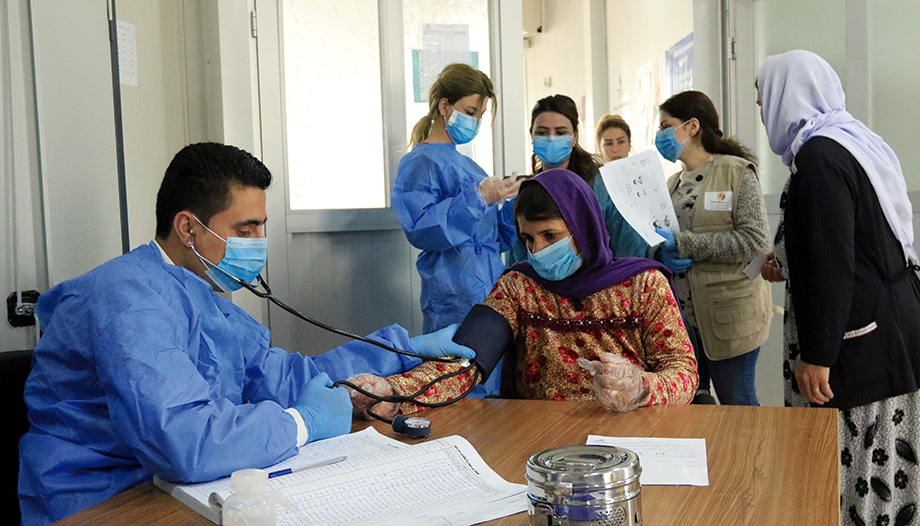There is a social category that is generally forgotten by both the media and society in general, and for this reason suffers an even greater vulnerability: the so-called "socially vulnerable". Internally displaced personsThe latest available data show that there are almost 51 million of them worldwide.
Technically, these are individuals or groups "who have been forced or obliged to escape or flee from their home or place of habitual residence."usually due to armed conflicts, natural disasters, elimination of their territories by armed groups or multinational companies (mining, intensive agriculture, etc.) or in general due to human rights violations, "that have not crossed an internationally recognized state border.".
Their situation is slowly receiving attention from the international community, in particular to encourage their participation in decision making that concerns them, by adopting protection laws or taking measures to address protracted displacement.
The Church has taken on board the concerns of this people of invisibles, forced into poverty, and a few weeks ago launched specific pastoral guidelines to deal with the phenomenon. These guidelines have been prepared by the Migrants and Refugees Section of the Dicastery for Integral Service of Human Development, entrusted to Cardinal Michael Czerny, S.J.
In particular, the Pastoral Orientations have been designed for Catholic dioceses, parishes and religious congregations, schools and universities, Catholic organizations and other civil society organizations, and are organized according to Pope Francis' four verbs for migrants: welcome, protect, promote and integrate, with a section also dedicated to cooperation and teamwork.
The maternal solicitude of the Church is also shown in the Message of Pope Francis himself for the upcoming 106th World Day of Migrants and Refugees, which will take place on September 27, and which was anticipated on May 13, the feast of the Blessed Virgin Mary of Fatima. The chosen theme offers a similarity between internally displaced persons and the experience that Jesus had to live through in the flight to Egypt together with his parents: a "tragic condition of displaced and refugee", Pope Francis writes, recalling a reference that his predecessor, Pius XII, had already indicated in his Apostolic Constitution Exsul Family of 1952. If the Orientations use the famous four verbs launched by the Pope already in 2017, the current Message expands them to six other pairs for a deeper reflection on the phenomenon and at the same time to carry out very concrete actions.
In the first place, Pope Francis writes, we must "to know in order to understand".and thus avoiding falling into the trap of cold statistics, because migrants and displaced persons "they are not numbers, but people!" y "if we find them, we can meet them" (precariousness, suffering). At the same time, "it is necessary to become a neighbor to serve"especially in order not to fall into the prejudices that make us keep our distance while being willing to take risks. "as we have been taught by so many doctors and healthcare personnel in recent months.". Here the Pope also refers to the phenomenon of the Covid-19 pandemic, which in recent months has further increased the suffering of these people. The third pair of verbs reminds us that "for reconcile is required listen". A listening that offers the opportunity "to reconcile ourselves with our neighbors, with so many discarded people, with ourselves and with God.". "For grow it is necessary to share"The pandemic, the Pope explains, has also demonstrated that "has reminded us that we are all in the same boat." (same worries, common fears) and that "no one is saved alone". Finally, "it takes engage for promote"This guarantees the rescue of the people through their own participation as protagonists, knowing that "it is essential collaborate for build"and this through "international cooperation, global solidarity and local commitment, leaving no one out.".









